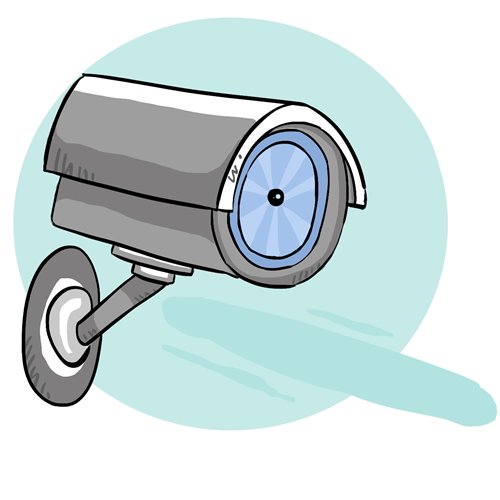METRO SHANGHAI / TWOCENTS
I was fined for not giving way to a pedestrian, but it’s fine

Illustration: Chen Xia/GT
I received a letter from the Shanghai traffic police, again. This time, it was a 100-yuan ($15) fine for my not giving way to a pedestrian while driving my daughter to school at 7:15 am last Monday.
Two months ago I was fined 200-yuan for driving on the yellow-label line plus a 3-point deduction on my driver's license. In China, every driver is given in total 12 driving points per year. That means if I dare touch that same yellow line three more times, my driver's license will be suspended.
To be frank, my first reaction to the penalty was anger, because I regard myself as a careful and considerate driver. I obey all traffic laws and drive in a good manner. When I saw the photos of my "criminal scene," taken by surveillance cameras, I thought I was being unfairly punished. The photos show a person at the side of the pedestrian crossing yet she hasn't stepped down on the zebra line. So I drove by without stopping or letting her go first.
Although I tried to justify my decision and criticize the profiteering practice of Shanghai's traffic police, I calmed down after contemplating what great progress our society has achieved.
We not only now have detailed traffic laws and regulations, but also enforcement. Ten years ago when I was studying in the US, how envious I was of their "pedestrian priority" when I saw almost all cars yield to pedestrians. In fact, in the quiet and sparsely populated town where the University of Missouri is located, few people are out and about, yet every driver stopped their car at intersections.
I still remember my comment in my diary, "I don't know when we Chinese drivers will act the same." But it seems that this day has finally arrived. I too welcome the arrival of civilized driving in China although I myself have suffered some fines because of it.
Surveillance systems record violators systematically. With little human resources, all evidence and irregularities are collected. The cameras do not affect traffic flow or cause trouble like on-the-spot police law enforcement. Conflicts between police and drivers are also avoided because there is no subjective judgment concerned.
The more I think about this practice, the more reasons for me to support it. The high-definition photos they send out remind every driver that they should behave well for the sake both of themselves and others. When one's wallet suffers, one has to reconsider his words and actions. I have confidence that there will be more and more good drivers on Shanghai's streets in the near future.
Local surveillance cameras are playing a bigger and bigger role in curbing criminals and assisting dispute solving. There is criticism concerning privacy protection among the public, but in fact the cameras protect the majority the public's life and assets to a larger extent.
We are reminded of the recent case in Kunshan city in neighboring Jiangsu Province involving a cyclist practicing self-defense against a knife-wielding BMW driver with "road rage." Video footage of the entire incident helped legal experts make fair verdict. Most believe that, without those cameras, the result of that case would not have been in favor of the cyclist.
I have reason to believe that there will be more civilized driving on Shanghai streets as surveillance and e-fines increase. Hopefully this will soon extend into other Chinese cities in the near future.
The opinions expressed in this article are the author's own and do not necessarily reflect the views of the Global Times.

